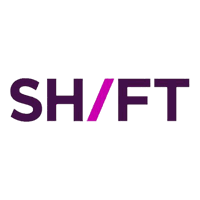Talks
-
The Cost Of JavaScript
![Addy Osmani]()
Addy Osmani
Engineering Manager, Google
As the world build sites that are more heavily reliant on JavaScript, we sometimes pay for what we send down in ways that we can’t always easily see.
Addy Osmani explains how and why JavaScript is the most expensive resource your site uses today—especially on mobile. Addy also shares tips for fixing JavaScript performance issues so everything loads quicker. A little discipline can help if you want your site to load and be interactive as soon as possible on mobile.
About Addy Osmani
Addy leads a Speed team on Google Chrome trying to make the web fast.
-
SVG Will Save Us
![Sarah Drasner]()
Sarah Drasner
Lead, Microsoft
SVGs are one of the most underutilized technologies on the web. They can be the most performant, flexible, and accessible image formats. In this session, Sarah will cover a few practical things like styling SVG icons like typography, and then dive into the creative wilds of this graphic format built with math. She'll make it respond to physics, make it bounce and snap, and make it interactive with front-end frameworks like Vue.js and React. In this session Sarah will push the boundaries of what's possible while also thinking about cross-browser stability, and you'll come out of it with a whole new world of tools in your front-end developer toolbox.
About Sarah Drasner
Sarah Drasner is an award-winning Speaker, Vue core team member, Lead of Emerging Markets, Cloud Advocates at Microsoft, and Staff Writer at CSS-Tricks. Sarah is also the co-founder of Web Animation Workshops, with Val Head. She's the author of SVG Animations from O'Reilly and has given Frontend Masters workshops on Vue.js and Advanced SVG Animations. Sarah is formerly Manager of UX Design & Engineering at Trulia (Zillow).
-
Resource loading, prioritization, HTTP/2 - oh my!
![Patrick Meenan]()
Patrick Meenan
Software Engineer, Cloudflare
How your website content is delivered can often be the most important aspect of a high-performance website. We will take a quick tour through how browsers schedule resources based on your content and then take a deep dive into how HTTP/2 changes things. We will go through the full stack from the front-end structure down into the network protocols and deployment architectures and expose the landmines, current state of the world and best-practices to ensure the best experience possible for your visitors.
About Patrick Meenan
Patrick Meenan has been working on web performance in one form or another for the last 20 years and is currently working at Cloudflare to make the web faster.
Prior to that he worked at Google to make Chrome and the web faster. Patrick created the popular open source WebPagetest web performance measurement tool, runs the free instance of it at www.webpagetest.org, and can frequently be found in the forums helping site owners understand and improve their website performance.
-
Runtime Scheduling on the Web
![Shubhie Panicker]()
Shubhie Panicker
Staff Software Engineer, Google Chrome
For consistent runtime performance -- UI should meet the needs of being responsive to user interactions (clicks, taps, scrolls, etc), rendering smooth animations, and fetching and rendering content in time. It is too difficult for web devs to reason about rendering pipeline and how to use combination of microtasks, rAF, settimeout, postmessage etc to achieve this. This talk covers our journey in developing a native scheduling API that can schedule browser tasks, framework code, application code, and third party code.
About Shubhie Panicker
Shubhie drives web performance efforts as an engineer on the Chrome Web Platform team at Google. She develops web performance oriented standardized platform APIs. Prior to Chrome, she worked on server infrastructure and web frameworks for products like Google Search, Google Photos, etc. Outside of Google, Shubhie is an avid Bay Area photographer and a staunch foodie.
-
Refactoring for Progressive Web Apps
![Erica Stanley]()
Erica Stanley
Engineering Manager, SalesLoft
This session outlines best practices in architecture and design patterns for progressive web apps (PWAs). Along the way, we'll detail common ways to refactor existing web apps to take advantage of these best practices and share lessons learned from the PWA migration of SalesLoft’s core application. We'll:
- Explore progressive web apps (PWAs) and why are they useful
- Learn best practices and modern technologies to prepare for PWAs
- Learn about design patterns for more performant PWAs
- Explore refactoring examples that incorporate these design patterns and lessons learned from building a PWA
About Erica Stanley
Erica Stanley is an engineer, entrepreneur and diversity & inclusion advocate. She is an engineering manager for the integrations and analytics teams at SalesLoft – where she’s helping grow the product engineering team for the 4th fastest growing software company in North America. She’s worked with Fortune 500 companies, as well as successful startups.
Erica is active in the Atlanta technology community. She founded the Atlanta network of Women Who Code, where she organizes conferences, hackathons, workshops and networking events for women technologists. She also helps develop and teach youth coding programs and mentors entrepreneurs for local incubators and accelerators.
-
Leading a pre-conference workshop "Getting Up to Speed with Performance"
![Tim Kadlec]()
Tim Kadlec
Performance Consultant, Tim Kadlec Consulting LLC
About Tim Kadlec
Tim is a performance consultant and trainer focused on building a web everyone can use. He is the author of High Performance Images (O'Reilly, 2016) and Implementing Responsive Design: Building sites for an anywhere, everywhere web (New Riders, 2012), and was a contributing author for Smashing Book #4: New Perspectives on Web Design (Smashing Magazine, 2013), and the Web Performance Daybook Volume 2 (O'Reilly, 2012). He writes about all things web at timkadlec.com. You can find him sharing his thoughts in a briefer format on Twitter at @tkadlec.
-
Leading a pre-conference workshop "Getting Up to Speed with Web Performance"
![Andy Davies]()
Andy Davies
Performance Consultant, Asteno Ltd
About Andy Davies
Andy is an Independent Web Performance Consultant and is fascinated by both the technical aspects of performance, its effect on user behaviour and impact of site success. He has helped some of the UK's leading retailers, newspapers and financial services companies make their sites faster. He is co-author of Using WebPageTest published by O'Reilly and author of The Pocket Guide to Web Performance.
-
Leveraging the power of service design to boost web performance
![Anthonia Carter]()
Anthonia Carter
Fulbright Scholar, US-UK Fulbright Commission
Designers know that performance is key to user experience. Do we limit ourselves to only individual user interactions? Service design is all about looking at the "big picture," designing experiences that reach people across many touch points (interactions between users and a brand, product, or service) over time. Not every design decision will favor performance, and it is essential for designers and developers to understand how cumulative experiences impact conversion and retention rates. This talk will discuss how to use service design to model end to end user journeys and to uncover gaps in overall web performance.
About Anthonia Carter
Anthonia Carter is a multidisciplinary innovator, visual narrator, and a US Fulbright Scholar. With a background in mathematics, fine art, and design, her work occupies the critical space where art, science, and technology intersect. She uses a design-led approach to help enterprises realize innovation opportunities.
-
How Privilege Defines Performance
![Tatiana Mac]()
Tatiana Mac
Community Engineer, Interactive Art Director
In theory, performance, accessibility, and inclusive design all have similar goals: Provide the best, most consistent experience to all people using the minimal amount of resources.
In practice, this often falls apart.
Product creators define what it means to be performant from where they stand, which is typically from places of privilege with unseen biases, struggling to find true empathy with their users.
Through this talk, we'll examine how to build conscientiously, looking within to resist systematic problems in order to create more truly performant, accessible, and inclusive systems for our users.
About Tatiana Mac
Tatiana Mac is an independent interactive art director and designer currently based out of Portland, Oregon.Tatiana is passionate about representing our diverse communities through design, which means building design systems with performance, inclusivity, and accessibility in mind throughout the entire process. She believes that design plays a critical role in changing our social landscape—to dismantle exclusionary systems in favor of community-focused, inclusionary ones.
When she's not designing, she's editing for A List Apart, moonlighting as a wardrobe stylist, adding countries to her travelled-to list, learning languages, and cheering on her favourite sports teams.
-
Crash Course in CrUX
![Rick Viscomi]()
Rick Viscomi
Senior Developer Programs Engineer, Google
This talk is a lightning demo of the Chrome UX Report. Learn how to quickly and easily extract insights from it to understand the web performance of real user experiences from millions of websites.
About Rick Viscomi
Rick Viscomi is a Senior Developer Programs Engineer at Google working on web transparency projects that track the state of the web including the Chrome UX Report and HTTP Archive. He is also the coauthor of the web performance book "Using WebPageTest" and once pair programmed with Snoop Dogg.
-
Happy Browser, Happy User!
![Katie Sylor-Miller]()
Katie Sylor-Miller
Staff Software Engineer, Etsy
Performance is fundamentally, a UX concern. Sites that are slow to render or janky to interact with are a bad user experience. We strive to write performant code for our users, but users don’t directly interact with our code - it all happens through the medium of the browser. The browser is the middleman between us and our users; therefore to make our users happy, we first have to make the browser happy. But how exactly do we do that?
In this talk, we’ll learn how browsers work under the hood: how they request, construct, and render a website. At each step along the way, we’ll cover what we can do as developers to make the browser’s job easier, and why those best practices work. You’ll leave with a solid understanding of how to write code that works *with* the browser, not against it, and ultimately improves your users’ experience.
About Katie Sylor-Miller
Katie is a Staff Software Engineer on the Frontend Systems team at Etsy, where she advocates for and implements frontend best practices in collaboration with product engineers and designers. She is passionate about frontend architecture, design systems, accessibility, frontend performance, and teaching others. Katie co-authored the Design Systems Handbook, but her proudest accomplishment is creating ohshitgit.com to share her hard-won knowledge of how to get out of your git messes with a bit of humor (and a lot of swears).
-
Fantastic Frontend Performance Tricks and Why We Do Them
![Jenna Zeigen]()
Jenna Zeigen
Senior Software Engineer, Slack
The internet was invented in a time that no expected we'd be making amazingly complex applications. So how do we deliver these applications quickly and reliably and provide our users with a good experience? Why do we even have to go through all this trouble? This talk will cover the state of the art in front-end performance optimizations— from minimizing file size to preventing thrashing— digging into the way the internet and browsers work to explain why each of these practices is important.
About Jenna Zeigen
One morning, Jenna awoke to find that she had transformed into a programmer. She's been psyched about coding ever since. When she's not teaching pixels to party or using JavaScript to help you find the important things in Slack, Jenna enjoys climbing, coffee, cognitive science, and cat gifs. Her best party trick is that she wrote the most serious academic paper of her life on puns.
-
Chaperones and curfews: minimising 3rd party impact
![Ryan Townsend]()
Ryan Townsend
CTO, SHIFT Commerce
Every year websites get heavier – but the majority of growth isn’t coming from code written at the organisations running them... it’s coming from 3rd parties.
Long gone are the days when it was viable to build everything internally, but their impact on performance is already getting a little out-of-hand. We don’t want to be the fun police throwing everyone out, but we can start to moderate the party.
In this talk we won’t be looking to remove 3rd parties altogether – nobody likes having their toys taken away; instead we’ll be taking the practical approach of accepting that 3rd parties aren’t going anywhere and look at what strategies we can employ for maintaining performance and safeguarding against slowdowns, outages and abuse.
About Ryan Townsend
With over 15 years experience developing for the web, and an undying passion for web performance, Ryan Townsend is the CTO of SHIFT Commerce – a SaaS e-commerce platform bringing agility to ambitious retailers.
His pragmatic and performance-led outlook means that—on the rare occasion that he does wear a shirt—his sleeves stay firmly rolled up: even as an exec, his favourite place is right there in the thick of things with his team.
Outside of the office, you’ll usually find him picking up heavy objects in the gym or falling off his mountain bike down the side of a hill.
-
Level up your web tools with WebAssembly
![Robert Aboukhalil]()
Robert Aboukhalil
Bioinformatics Software Engineer, Invitae
This talk is a deep dive into WebAssembly and how it can help you level up your web applications.
We'll start the talk by introducing WebAssembly, how it works, and how to get started using it. Next, to concretely demonstrate how WebAssembly can be used to speed up web tools, we'll consider the application fastq.bio, an interactive front-end-only web tool we previously developed in JavaScript to help biologists QC their DNA sequencing data. By compiling an existing QC tool from C to WebAssembly and optimizing the original C code, we obtain >10X speedup compared to our original JavaScript implementation!
We'll also cover how we can leverage WebWorkers alongside WebAssembly to maintain the UI's responsiveness, and how this enables us to more easily mount File and Blob objects onto a virtual file system.
Finally, we'll conclude by discussing rules of thumb on when to use WebAssembly, and when to avoid it.
About Robert Aboukhalil
Robert is a Bioinformatics Software Engineer, which means that he spends his time engineering software for bioinformatics purposes. Specifically, he develops cloud applications to enable the interactive analysis and exploration of genomics data. Robert has a Ph.D. in Bioinformatics from CSHL and a Bachelor in Computer Engineering from McGill.
-
The intersection of accessibility and performance
![Eric Bailey]()
Eric Bailey
Designer, thoughtbot
Accessibility is a holistic practice, essential to some but useful to all. It is a practice that touches on many aspects of good web design and development, especially performance. This talk will highlight opportunities and techniques to improve your website or web app's performance by embracing an accessible, inclusive mindset.
About Eric Bailey
Eric Bailey is an Inclusive Design advocate, A11Y Project maintainer, MDN Web Docs contributor, and recovering curmudgeon.
-
Taking the Guesswork out of Performance Budgets
![Buddy Brewer]()
Buddy Brewer
GVP Product Management, New Relic
Most people know how fast their sites are today thanks to the thriving ecosystem of free and commercial tools for monitoring site performance. But when it comes to how fast their sites should be, most site owners are still flying blind. As a result they guess at what their performance budgets should be - or worse - don’t bother setting performance budgets at all.
In this talk we will lay out a specific and repeatable process for solving this problem by working through the following key questions, using a little bit of machine learning and statistical analysis via freely available tools and OSS libraries:- My monitoring tools give me so many different metrics that I don’t know where to begin optimizing. So which performance metric is my site’s “hero metric”? How do I find the metric that most accurately predicts whether my visitors will do what I want them to do?
- What should the value of that metric be, and what would achieving that value do for my business? How do I pick a precise and defensible value to organize my team and my team’s goals around?
- Even if I knew my site’s hero metric and what the value should be, I have more performance issues on my backlog than I have bandwidth to solve. How do I narrow and prioritize my focus to manageable clusters of visitors and issues to act on?
Answering these key questions will help you squeeze more value out of the tools and techniques you already have, so that you can achieve better outcomes for your users (and subsequently your business) in less time.
About Buddy Brewer
Buddy helps companies find and fix performance problems that make customers unhappy and get in the way of revenue. A software engineer, product manager, and RUM entrepreneur at various points in his career, he has been building tools to help people make their sites faster for almost 20 years.
-
The Business of Performance
![Lauren Younger Nagel]()
Lauren Younger Nagel
Product Line Lead, DPM, Akamai
Panel Moderator
About Lauren Younger Nagel
Lauren has been interested in computers and software ever since her first TI-99 when she was four years old. Her career started as a software design engineer in Test, until she realized that the best way to prevent bugs was to not design them in – and thus made the leap to product management. Today, Lauren is responsible for Digital Performance Management at Akamai, which brings together her love of testing and analytics, as well as her keen interest in everything that makes the internet run fast. She also just had her first baby, whom she considers her best product ever!
-
Measuring User Perceived Performance to Prioritize Product Work
![Gemma Petrie]()
Gemma Petrie
Mozilla, Senior Staff User Researcher
Performance is a primary metric deployed in software benchmarks, yet user perceived performance is equally important for assessing a user's experience as they pursue their goals with software. We will share our experience using perceived performance user research to help prioritize product work for the Firefox desktop and mobile browsers. We will discuss how we design perceived performance studies, how we have used perceived performance studies to benchmark the user experience over time, and how these insights have helped us identify and prioritize the greatest areas of improvement for our products.
About Gemma Petrie
Gemma Petrie is a multi-method user researcher focused on informing the development of global products and services through understanding the complexity of context, culture, and relationships in markets around the world. Gemma lives in Seattle, has a background in nonprofit development, and an MLIS from the University of Illinois. She currently works as a Senior Staff User Researcher and Manager for Mozilla Firefox.
-
Measuring User Perceived Performance to Prioritize Product Work
![Heather McGaw]()
Heather McGaw
Staff User Researcher, Mozilla
Performance is a primary metric deployed in software benchmarks, yet user perceived performance is equally important for assessing a user's experience as they pursue their goals with software. We will share our experience using perceived performance user research to help prioritize product work for the Firefox desktop and mobile browsers. We will discuss how we design perceived performance studies, how we have used perceived performance studies to benchmark the user experience over time, and how these insights have helped us identify and prioritize the greatest areas of improvement for our products.
About Heather McGaw
Heather McGaw is a Toronto-based user researcher and educator driven by the desire to make technology more helpful and accessible across a wide range of human experiences. She currently works at Mozilla as a Staff User Researcher and teaches UX Research at Humber College.
-
Performance Benefits of Variable Fonts
![Mandy Michael]()
Mandy Michael
Front End Developer Manager, Seven West Media
Variable fonts are a game changer for how we use typography on the web. With improvements to performance and responsive typography, variable fonts deliver practical improvements for designers and developers alike.
We’ll explore what variable fonts are, how to use on your website as well as the benefits to actual and perceived performance on the web including from file improvements, compression, display options and rendering.
With an increase in support and creation of variable fonts in the past year, now is the time to start understanding, exploring and experimenting the exciting future ahead for typography on the web.
About Mandy Michael
Mandy is a community organiser, speaker, and developer working as a Development Manager at Seven West Media in Western Australia. She is a co-organiser and Director of Mixin Conf, and the founder and co-organiser of Fenders, a local Meetup for front end developers providing events, mentoring and support to the Perth web community. In 2018 she was named one of the Top 20 women in Tech in Western Australia.
Mandy’s passion is CSS, HTML and JS, she has a particular interest in web typography, accessibility and modern layouts, and hopes to inspire that passion in others. Mandy loves the supportive and collaborative nature of the web, her aim is to create a community of web developers who can share, mentor, learn and grow together.
-
Think Fast, First: Empowering Performance Culture
![Alfredo Lopez]()
Alfredo Lopez
Director of Engineering, Hearst
Attending a conference can be exciting but also overwhelming. This is the story of attending PerfMatters a year ago, and the learnings of establishing a performance culture by empowering non-technical team members to understand, own, and plan their performance impact through a path that aspires to be seamlessly integrated into the development lifecycle.
About Alfredo Lopez
Alfredo is a Director of Engineering at Hearst working with technical and non-technical teams to develop tools and promote guidelines that abstract best practices and performance enhancements into measurable business goals.His current interests include creating highly performant and flexible web applications that enable developers to be productive. Prior to Hearst, Alfredo worked for an ad platform writing low-level Javascript that catered to strict browser support requirements. Outside of the web, Alfredo is a musician, film enthusiast, and comedy fan.
-
A Billion Phones and Even More People
![Keerthana Krishnan]()
Keerthana Krishnan
Software Engineer, Baker Hughes, A GE Company
The growth of internet usage in developing countries has been very uneven, with adoption focussing mainly in urban centres. But this is a trend that is rapidly changing in areas like South Asia and Africa. As Billions of users get added to this ecosystem by 2020, many of them using technology for the first time, it brings with it a ton of new challenges. This talk focuses on exploring how we can give the best performance for users from these areas by considering their usage patterns and behaviours, with a special focus on mobile performance.
About Keerthana Krishnan
Keerthana is a software engineer who's passionate about building the best websites she can for everyone. She has previous experience with speaking including Node + JS Interactive 2018. She lives in the sunny town of Cochin, India and works as a full stack web developer to pay the bills
-
Profiling the Profiler
![Greg Tatum]()
Greg Tatum
Browser Engineer, Mozilla
Writing DevTools is an inherently recursive problem: the tools you build are required to debug the tools you are building. This talk explores this circular relationship of building a web-based profiler for Firefox, that itself is used to profile Firefox. It dives into many of the practical aspects of making a fast product, and the types of analysis that is used. It also explores the importance of having fast tools and happy users. Responsive and ergonomic tools mean that its easier for engineers to fix performance problems, which in turn means that the web is faster for all of the end-users of Firefox.
Learn some of the engineering story behind Firefox Quantum, and the profiler that was used by many of the Firefox engineers to analyze and validate many of the new browser technologies that have gone into re-inventing the internals of Firefox.
About Greg Tatum
With a background in art, but a job title that has the word "engineer" in it, Greg Tatum enjoys spending time in the odd space between the technical and creative. For Mozilla, Greg Tatum works on building tools to help make Firefox faster. This work varies from instrumenting the platform internals, to taking data sources and turning them into actionable visualizations.
-
Delighted, Satisfied, or Angry? : Building empathy into our core business metrics to put users first.
![Nathan Bower]()
Nathan Bower
Sr. Product Manager, Performance, Zillow Group
All too often developers ask the question, “Is my service or feature healthy?” When more importantly we should be asking the question, “Are my users happy?” Zillow developed a new convention shifting our culture so we can better relate empathy for our users.
This new strategy integrates performance directly in our business metrics and drives priority to what matter most, our users. Come learn why we’ve made this shift, and how we’re measuring. Learn how we have enabled our developers and product managers to be accountable for performance and transparent with prioritization of performance against new and existing feature development. Nathan will share challenges observed and overcome as they’ve evolved too. Performance no longer takes a back seat during development. Call shotgun. You’re in for a ride.
About Nathan Bower
Nathan is a Senior Product Manager in Performance at Zillow Group. Nathan's mission is collaborating closely with product teams on all things performance. Nathan formerly lead a performance team at MSN.com and has spoken at VelocityConf and Twitter's "Hello World!" conference.
-
Our Fabulous eMCee
![Mina Markham]()
Mina Markham
Senior Engineer, Slack
Will be introducing all our fabulous speakers and guiding us through this journey we call #PerfMatters.
About Mina Markham
Mina Markham is a Senior Engineer at Slack. She's a lover of design systems and prolific public speaker, appearing at events worldwide, including CSS Dev Conf, Fluent, and Future of Web Design. Mina also co-organizes Front Porch Conference.
Previously at Hillary for America, her work on the Pantsuit pattern library has been spotlighted in WIRED, Fast Company, and Communication Arts. Mina likes ampersands, Oreos, traveling, cupcakes, and the color pink. She lives in Oakland, California.
-
co-emCee
![Estelle Weyl]()
Estelle Weyl
Contractor, MDN Web Docs, Standardista
If you want a pre-cursor to this fabulous conference intro, please read the conference code of content.
About Estelle Weyl
Estelle started her professional life in architecture and then managed teen health programs. In 2000, Estelle took the natural step of becoming a web standardista. She currently writes for MDN Developer Network and organizes #PerfMatters Conference. She has consulted for Kodak Gallery, SurveyMonkey, Samsung, Yahoo, Visa, and Apple, among others. Estelle shares esoteric tidbits learned while programming in her blog. She is the author of Mobile HTML5 and co-authored CSS: The Definitive Guide, and HTML5 and CSS3 for the Real World. While not coding, Estelle works in construction, de-hippifying her 1960s throwback abode.
Register for #PerfMatters Conference
April 2 & 3, 2019 at Cañada College
| Ticket Type | Sale Ends | Available | Cost |
|---|---|---|---|
| Blind Bird | October 30, 2018 | EXPIRED | $329 |
| Very Early Bird | November 30, 2018 | EXPIRED | $379 |
| Early Bird | January 31, 2019 | EXPIRED | $429 |
| Missed the worm Ticket | February 28, 2019 | Expired | $479 |
| Regular Ticket | March 15, 2019 | EXPIRED | $549 |
| Last minute Ticket | March 28, 2019 | EXPIRED | $599 |
Plan on missing the March 28, 2019 deadline? Well, #PerfMatters.
Prices will be going up $50 per day starting March 29 ($649).
| Ticket Type | Sale Ends | Available | Cost |
|---|---|---|---|
| Blind Bird | October 30, 2018 | EXPIRED | $369 |
| Very Early Bird | November 30, 2018 | EXPIRED | $419 |
| Early Bird | January 31, 2019 | EXPIRED | $469 |
| Missed the worm Ticket | February 28, 2019 | EXPIRED | $528 |
| Regular Ticket | March 15, 2019 | EXPIRED | $598 |
| Last minute Ticket | March 28, 2019 | AVAILABLE | EXPIRED |
| Ticket Type | Sale Ends | Available | Cost |
|---|---|---|---|
| Blind Bird | October 30, 2018 | EXPIRED | $578 |
| Very Early Bird | November 30, 2018 | EXPIRED | $708 |
| Early Bird | January 31, 2019 | EXPIRED | $808 |
| Missed the worm Ticket | February 28, 2019 | EXPIRED | $908 |
| Regular Ticket | March 15, 2019 | EXPIRED | $1098 |
| Last minute Ticket | March 28, 2019 | WAITLIST | $1,198 |
Prices subject to change. No refunds. Tickets are transferable with notice. Getting tickets for a 5 or more people? Get $50 off for the fifth person and everyone thereafter. Group of 10 or more? Contact us at tickets@perfmattersconf.com

































